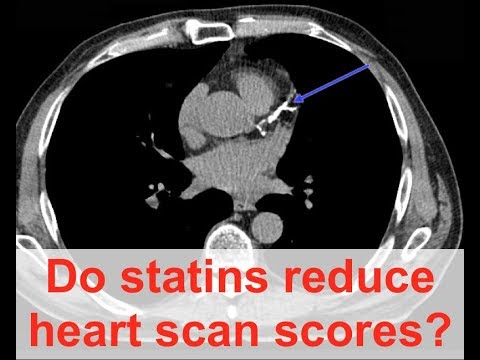Are you curious about whether statins can reduce heart scan scores? In a video by Dr. William Davis, he discusses the impact of statin cholesterol drugs on CT heart scan scores. Contrary to common belief, taking statin drugs, aspirin, and following a low-fat diet does not stop the increase in heart scan scores. Dr. Davis sheds light on alternative strategies that can effectively reduce heart scan scores and eliminate the risk for heart disease, providing a fresh perspective on managing cardiovascular health. By rejecting conventional methods and focusing on optimizing health through comprehensive strategies, Dr. Davis aims to empower individuals to take control of their well-being without solely relying on medications.
Exploring the relationship between cholesterol drugs and heart scan scores, Dr. Davis challenges the traditional approaches to cardiovascular health. With a focus on addressing the underlying causes of heart disease, Dr. Davis advocates for a holistic approach that includes diet, lifestyle changes, and targeted testing. By sharing his insights through the “Wheat Belly” and “Undoctored” programs, Dr. Davis aims to educate individuals on how they can achieve optimal health and reduce their risk for heart disease without solely relying on pharmaceutical interventions. Join the conversation and discover a new perspective on managing heart health.

Definition of Heart Scan Scores
When we talk about heart scan scores, we are referring to what is known as the coronary calcium score, which is essentially an index or measure of the volume of plaque present in the arteries surrounding the heart. This plaque can lead to serious cardiac events like heart attacks or chest pain and is a key indicator of cardiovascular health.
Effect of Statin Cholesterol Drugs
Statin cholesterol drugs like Lipitor, Crestor, and Zocor are often prescribed to reduce total LDL cholesterol levels in the body. However, when it comes to heart scan scores, these medications do not have any significant impact on stopping the increase in scores. Despite conventional medical advice promoting the use of statins, aspirin, and a low-fat diet to manage heart scan scores, studies have shown that this approach does not effectively slow down the progression of coronary calcium.
Conventional Medical Treatment
Conventional medicine typically relies on strategies such as low-fat diets, statins, and the use of aspirin to address heart health and manage heart scan scores. While these methods are commonly recommended by healthcare providers, they have been found to offer little to no benefit in reducing the progression of coronary calcium in the arteries.
Ineffectiveness of Traditional Treatment
Research has shown that the traditional approach to managing heart scan scores through methods like statins, low-fat diets, and aspirin is largely ineffective. Despite being widely prescribed, these interventions do not prevent the increase in heart scan scores, leaving individuals at risk of developing heart disease over time.
Optimal Medical Therapy
Optimal medical therapy focuses on a holistic approach to heart health management rather than relying solely on medications like statins. This approach emphasizes factors such as diet, exercise, and the use of specific health tools to address the underlying causes of heart scan score progression.
Strategies to Stop Heart Scan Score Increase
There are several alternative strategies available to individuals looking to halt the rise in heart scan scores. By incorporating lifestyle modifications, dietary changes, and targeted supplementation, it is possible to slow down the progression of coronary calcium and reduce the overall risk of heart disease.
Easily Accessible Health Tools
Inexpensive and effective strategies exist that can help individuals reduce their heart scan scores and minimize their risk of heart disease. These tools are readily available and accessible to everyone, making it easier to take control of one’s heart health and overall well-being.
Factors Influencing Heart Scan Scores
Several key factors play a role in determining heart scan scores, including lipoprotein testing, vitamin D restoration, magnesium levels, iodine intake, thyroid function, and microbiome health. By understanding how these factors impact cardiovascular health, individuals can take proactive steps to improve their heart scan scores.
Misconceptions about Statins
One common misconception surrounding heart health is the belief that statins are necessary to control heart scan scores. Despite the widespread use of statin drugs, research has shown that they do not effectively reduce coronary calcium progression. By debunking this myth, individuals can explore alternative approaches to managing heart health.
Promoting Healthier Alternatives
Encouraging the adoption of holistic approaches to heart health maintenance can provide individuals with effective tools for reducing heart scan scores and minimizing the risk of heart disease. By shifting focus away from statins and towards comprehensive lifestyle changes, individuals can achieve optimal heart health without relying solely on medications.
In conclusion, understanding heart scan scores as a measure of coronary calcium index is essential for effective heart health management. By exploring alternative strategies, addressing key factors influencing heart scan scores, and promoting healthier alternatives, individuals can take proactive steps towards reducing the risk of heart disease and improving their overall well-being. Remember that optimizing medical therapy and adopting a holistic approach to heart health can lead to better outcomes and long-term success in managing heart scan scores.